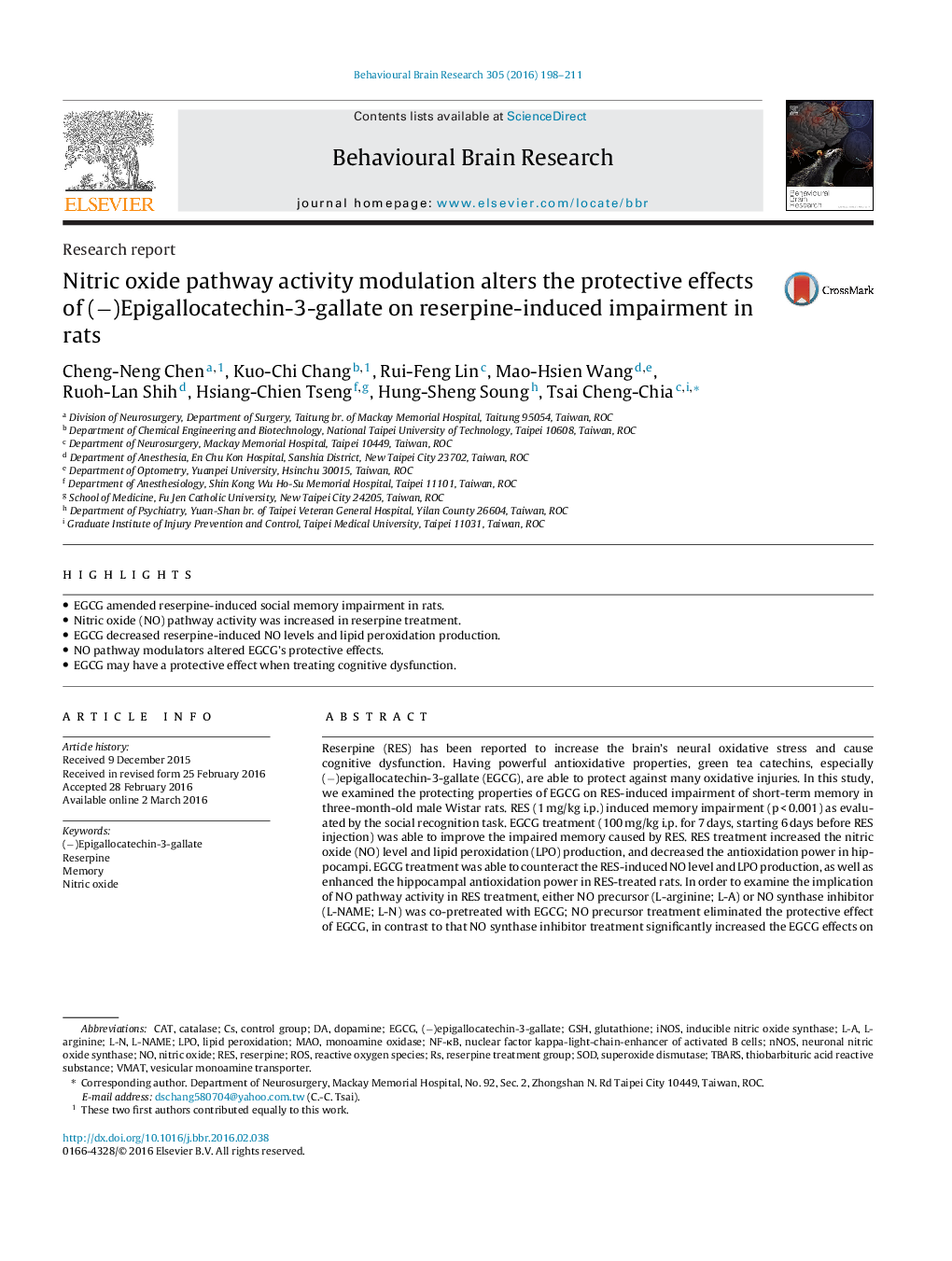| Article ID | Journal | Published Year | Pages | File Type |
|---|---|---|---|---|
| 4312161 | Behavioural Brain Research | 2016 | 14 Pages |
•EGCG amended reserpine-induced social memory impairment in rats.•Nitric oxide (NO) pathway activity was increased in reserpine treatment.•EGCG decreased reserpine-induced NO levels and lipid peroxidation production.•NO pathway modulators altered EGCG’s protective effects.•EGCG may have a protective effect when treating cognitive dysfunction.
Reserpine (RES) has been reported to increase the brain’s neural oxidative stress and cause cognitive dysfunction. Having powerful antioxidative properties, green tea catechins, especially (−)epigallocatechin-3-gallate (EGCG), are able to protect against many oxidative injuries. In this study, we examined the protecting properties of EGCG on RES-induced impairment of short-term memory in three-month-old male Wistar rats. RES (1 mg/kg i.p.) induced memory impairment (p < 0.001) as evaluated by the social recognition task. EGCG treatment (100 mg/kg i.p. for 7 days, starting 6 days before RES injection) was able to improve the impaired memory caused by RES. RES treatment increased the nitric oxide (NO) level and lipid peroxidation (LPO) production, and decreased the antioxidation power in hippocampi. EGCG treatment was able to counteract the RES-induced NO level and LPO production, as well as enhanced the hippocampal antioxidation power in RES-treated rats. In order to examine the implication of NO pathway activity in RES treatment, either NO precursor (L-arginine; L-A) or NO synthase inhibitor (L-NAME; L-N) was co-pretreated with EGCG; NO precursor treatment eliminated the protective effect of EGCG, in contrast to that NO synthase inhibitor treatment significantly increased the EGCG effects on cognitive and biochemical protection in RES-treated rats. These results suggested that the NO pathway was implicated, at least in part, in the RES-induced impairment, as well as in the protective effect of EGCG in treating RES-induced impairment of memory. The above evidence provides a clinically relevant value for EGCG in preventing RES-induced cognitive dysfunction.
